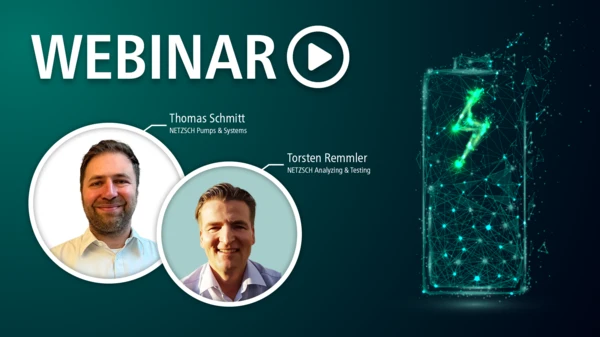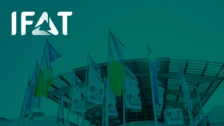在线研讨会
15.11.2022 09:00 – 09:45
15.11.2022 09:00 – 09:45(Berlin UTC +01:00)
Smart Solutions for Battery Processing
subscribe now
Smart Solutions for Battery Processing: How You Benefit From the Innovative Systems From NETZSCH
The climate crisis demands new approaches in many areas of life. As a result, electromobility or energy generation from renewable sources is very much in demand. For this reason, the need for high-performance batteries is constantly increasing. In the English-language webinar, Thomas Schmitt, development engineer at NETZSCH Pumpen & Systeme GmbH and Torsten Remmler, expert for rheology at NETZSCH Gerätebau GmbH, will show you how to make battery production more efficient in the future and combine process steps.
Battery production requires extreme precision in some process steps. A few millimetres decide the product quality when applying battery slurry to the carrier film of the battery cells. Accordingly, the medium must be dosed precisely. According to the current state of the art, the shear rate distribution in the pump and the shear rate profile of the medium must first be analysed separately so that the speed of the pump can then be optimally adjusted and the pump can apply the right amount of battery sludge to the battery cells. But couldn't these two process steps be combined and thus increase the quality?
In the webinar, Schmitt and Remmler present a system that determines the shear rate profile of the medium in real-time and adjusts the pump directly to the corresponding parameters so that you achieve constant dosing without deviation. And that's not all. The more significant advantage of the NETZSCH system lies in the continuous viscosity measurement of the battery sludge. According to the current state of the art, this is only possible on a spot-check basis. Rejects and correspondingly high costs can accordingly only be partially counteracted. With inline rheo measurement from NETZSCH, the measurement takes place in real-time so that outcasts are almost entirely avoided, the quality is significantly increased, and the costs are reduced.

